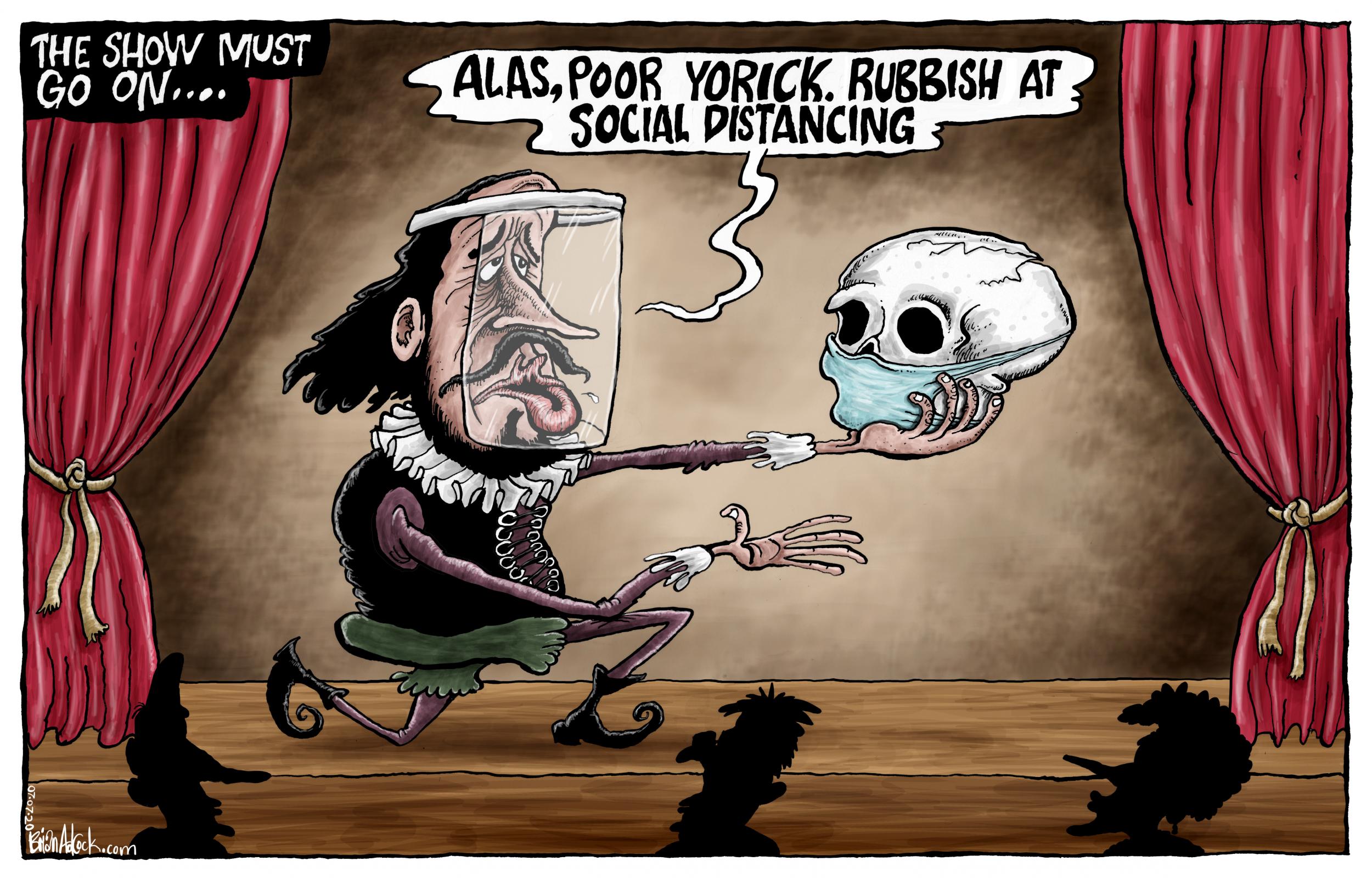The aid package for the arts and entertainment is too little, too late
Editorial: Many critics wonder what has taken the government so long to get its act together

As a matter of political theatre, the government’s £1.57bn package for the arts has enjoyed mixed reviews.
While most of the rest of the economy has had a “protective arm” placed around it, as Boris Johnson says, the actors, musicians, artists, directors, technicians, writers, dancers and all the others who make Britain a cultural world leader have been next to without financial comfort. The cinemas are open, but not the concert halls or theatres. Having been forcibly locked down since March, many critics wonder what has taken the government so long to get its act together – and too late for some, such as the Nuffield Southampton Theatres, which went bust only days before the announcement.
Surely not some lingering prejudice in Tory circles about establishment “luvvies” and layabout wannabe comics and rock stars? Or lingering disappointment at a below-par performance of Wicked the last time they ventured to the West End?
To borrow a phrase, in the arts and entertainment ministers don’t get to choose which talent should be officially approved – the embrace offered by the culture secretary, Oliver Dowden, has to be inclusive. Given the hundreds of billions allocated to the furlough scheme and various other “bounce back” business, the relief package for the arts doesn’t seem like much. There is a rumour that Rishi Sunak will soon be offering free tickets for some venues so that taxpayers can see what use their money has been put to; bread and circuses for our times.
But when? Maybe not even in time for the panto season, bad news for fans of Christopher Biggins, but also a reminder that the arts and entertainment, apart from the most commercially successful branches, may need some prolonged support.
Caution about the safety of theatrical performances is still being strictly exercised, but not so much our beloved public houses and bars. Reports over the weekend suggest that most British boozers were lively but relatively responsible (premises and patrons, that is), but there is inevitably a risk that close proximity of so many people indoors will push infection rates in parts of England up to dangerous levels (Scotland, Wales and Northern Ireland having pushed the virus down more successfully have a little more margin for safety as they ease out of lockdown).
As anyone who has stayed in a bar until closing time will know, it gets harder to encourage responsible behaviour as the evening wears on. Drinking and eating are incompatible with face coverings at the best of times. The coronavirus is still in circulation and still capable of exponential growth, and a bar is an ideal spot for incubation.
As ever, then, easing lockdown is a matter of balance, and in England the government has been moving too rapidly for fear of damaging the economy irrevocably (with Brexit adding to the risks). As the UK chief medical adviser Chris Whitty has reminded us, a weakened economy and more deprivation mean unwelcome consequences for healthcare too.
We will soon discover whether a second wave of infections will bring the curtain down again on our fragile national recovery.
Join our commenting forum
Join thought-provoking conversations, follow other Independent readers and see their replies
Comments